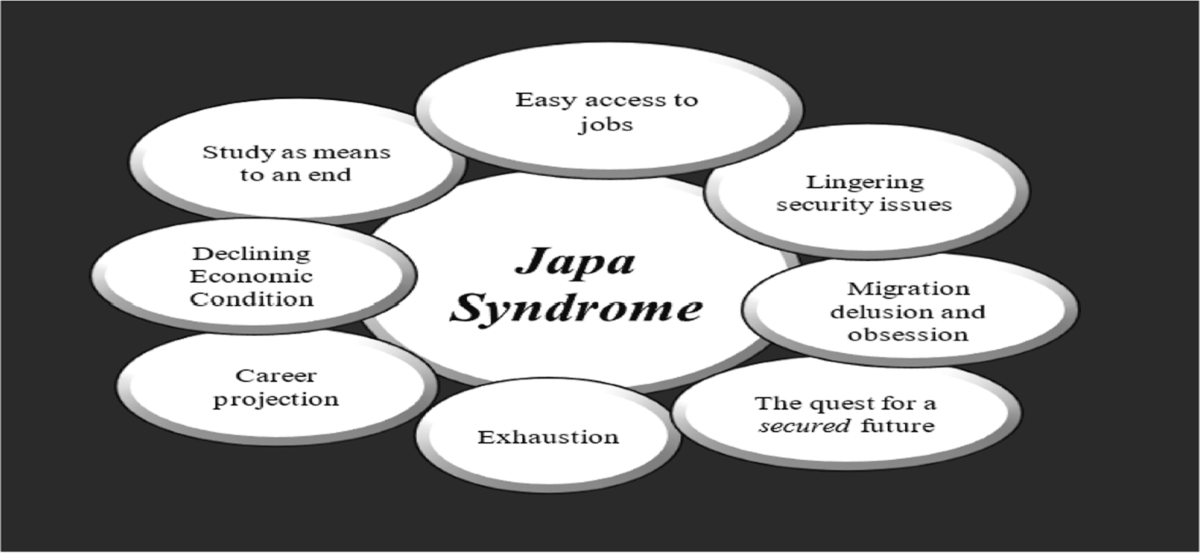If Everyone Wants to Leave Nigeria, Who Will Stay to Fix It?

Every day, the dream of leaving Nigeria grows stronger in the hearts of its youth. Airports have become emotional battlegrounds filled with hugs, tears, and quiet relief. The word “japa” is now more than slang; it’s a survival strategy. For some, it represents hope and opportunity; for others, it exposes the deep wounds of a nation that has failed to give its brightest minds a reason to stay.
It’s easy to understand the frustration. Nigeria’s economy continues to suffocate under inflation, joblessness, and political decay. Power outages, poor infrastructure, and insecurity have made even basic living exhausting. According to Statista, over 69% of Nigeria’s youth are unemployed or underemployed, a figure that continues to drive migration intent. The United Nations Department of Economic and Social Affairs also notes a rising number of Nigerian professionals relocating to the UK, Canada, and the US in search of better futures.
Yet beneath the valid desperation lies a haunting paradox if every talented, skilled, and educated Nigerian leaves, who will be left to fix the system? Who will challenge the corruption, innovate in business, or teach the next generation to dream differently?
Leaving isn’t the problem, it’s what we leave behind that matters.
The Psychology of Escape
The average Nigerian youth is tired, not lazy, not unambitious, just tired. Decades of broken promises, rising insecurity, and social inequality have turned survival into a full-time job. The “Nigerian dream” has become a joke in many circles, replaced by the “Canadian dream.” For a country with the largest youth population in Africa, it’s ironic how little faith that same youth now has in its homeland.

But there’s something deeply psychological about this mass migration. It’s not just economic, it’s emotional. Many young Nigerians no longer feel seen or heard in their own country. The system doesn’t reward integrity, innovation, or effort. It rewards connections, manipulation, and luck. It’s no wonder many feel their only chance at a dignified life is abroad.
However, the truth is bitter, no nation ever got better because its best people left.
The Cost of an Empty Nation
When the brightest minds exit, the brain drain becomes a national tragedy. Nigeria’s healthcare system, for instance, has lost thousands of skilled doctors and nurses to countries like the United Kingdom, Canada, and Saudi Arabia. According to the UK General Medical Council, over 17,000 Nigerian-trained doctors are now practicing in Britain, roughly one-third of Nigeria’s active medical workforce.
This loss extends beyond medicine. Engineers, IT specialists, lecturers, and creatives are all leaving creating a vacuum that no policy can quickly replace. The irony is that many of these migrants excel abroad, proving that the problem isn’t talent, it’s the environment.
When good people leave, bad systems thrive. Corruption becomes easier, mediocrity takes root, and hope fades. A nation’s greatest asset is its people, but Nigeria is bleeding hers away, flight by flight.
Why Staying Feels Like Punishment
It would be dishonest to shame those who leave. Staying in Nigeria often feels like a punishment for loyalty. Many who remain face systemic frustrations delayed salaries, limited opportunities, and rising insecurity. The country’s leadership often makes patriotism feel like foolishness.
There’s also a silent class divide. While ordinary Nigerians struggle, those in power live in luxury. Politicians’ children attend foreign universities, while the local education system collapses. Leaders receive medical care abroad, while citizens queue in overcrowded hospitals. This hypocrisy only deepens the desire to escape.
But if everyone leaves, Nigeria becomes an empty shell rich in resources but poor in purpose.
The Need for Balance

The truth is, not everyone can or should leave. Migration is a right, not a solution. What Nigeria needs is balance, a generation that can build bridges between those abroad and those at home. The diaspora plays an important role; remittances from Nigerians abroad reached $20.13 billion in 2023, sustaining millions of families and businesses.
But remittances alone can’t build institutions. The real transformation must come from within. Those who stay need to see value in their choice, through better governance, entrepreneurship opportunities, and security. Those abroad should be encouraged to reinvest, collaborate, and transfer knowledge homeward. The question isn’t who left , it’s who’s contributing.
Rebuilding Hope
There’s a rising movement of young Nigerians who have chosen to stay and fight differently. Across the tech, media, and creative industries, these individuals are redefining what’s possible. Startups like Flutterwave, PiggyVest, and Andela were all built by young Nigerians who refused to let their environment define them.
The 2020 #EndSARS movement also showed what collective youth power can look like organized, digital, and determined. Though it ended painfully, it reawakened civic consciousness among a generation that had long felt powerless. It proved that Nigerians don’t lack courage, they lack a system that rewards it.
If that same energy could be channeled into governance, education, and innovation, the story might change. But it starts with one decision: to believe that Nigeria is still worth saving.
A Nation Still Worth Fighting For
Nigeria is frustrating, yes but it’s also full of potential. Its people are resourceful, creative, and resilient. The same country that exports its talent could one day become the place that attracts it back. Nations like India and China once faced similar exoduses, but they invested in local industries, innovation, and youth capacity eventually reversing the brain drain. Nigeria can do the same if it truly prioritizes the future.
The key is trust, trust in leadership, in process, and in each other. Until Nigerians collectively decide that mediocrity is unacceptable, the cycle will continue. Leaving might offer comfort, but staying or at least contributing back is what rebuilds nations.
The Hard Truth
Nigeria’s youth don’t owe the country blind loyalty. They owe themselves growth, dignity, and peace of mind. But patriotism doesn’t always mean staying physically, it means refusing to forget where you came from. Whether at home or abroad, the mission should be the same: to make Nigeria a place worth returning to.
Perhaps the real question isn’t “Who will stay?” but “Who will still care?”
Because nations don’t fall when people leave, they fall when those who can change them stop trying.
Ultimately, the story of Nigeria isn’t written by those who leave, but by those who stay and act. Staying doesn’t mean accepting dysfunction, it means engaging with courage, creativity, and resilience. Every effort, every innovation, every act of accountability shapes the future. Nigeria’s youth have the power to rebuild, redefine, and restore hope whether at home or from abroad. The question is not only who will stay, but who will care enough to transform dreams into reality.
You may also like...
WNBPA's Bold Play: Revenue Sharing and Housing Concessions on the Table!

The Women's National Basketball Players Association has submitted a revised collective bargaining counterproposal to the...
Cavs-Pistons Clash Marred by Star Injuries, Power Outage Chaos!

A thrilling NBA game between the Detroit Pistons and Cleveland Cavaliers was halted by an 18-minute delay due to a blari...
Web-Slinging Scoop: 'Spider-Man: Beyond the Spider-Verse' Gets Critical Production Update!

The highly anticipated "Spider-Man: Beyond the Spider-Verse" faces significant delays, now set for a June 2027 release, ...
Hollywood Shake-Up: Warner Bros. Acquires Paramount in Staggering $110 Billion Merger!

Hollywood's long-anticipated merger between Paramount and Warner Bros. Discovery is officially on, with Paramount acquir...
Heartbreaking Revelation: Cause of Death Uncovered for Lil Jon's Son, Nathan Smith

Lil Jon's 27-year-old son, Nathan Smith, known as DJ Young Slade, died in February from drowning, with psilocybin use no...
Music Icon Neil Sedaka Passes Away at 86, Honored for Legendary Career

Legendary singer-songwriter Neil Sedaka, known for hits like “Breaking Up Is Hard to Do,” has passed away at 84. The Gra...
Gaming Giant Under Fire: Call for Nintendo to Reallocate RPG Talent at Camelot Studio

Despite significant technical improvements, the new Mario Tennis Fever receives a lukewarm review, scoring a 7 out of 10...
AI Unleashes New Era: Image-to-Video Tools Supercharge Content Creation Speed

Artificial intelligence is revolutionizing video creation, offering powerful solutions that dramatically accelerate work...






